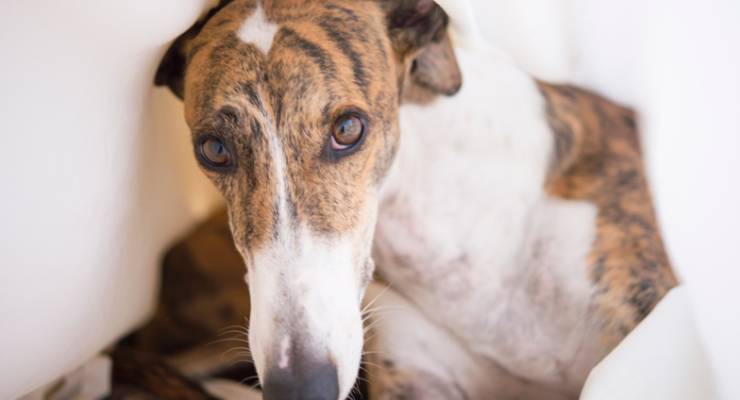
The University of Melbourne has admitted that its dental school is using live greyhounds for dental surgery studies involving implants before killing the dogs.
A 2014 study involving six greyhounds, which had teeth removed and replaced with implants before being killed “to perform histological and morphometric analysis”, is currently the subject of a Humane Research Australia petition to Melbourne Dental School, where the study, by Ehsan Mellati, Stephen Chen, Helen Davies, Wayne Fitzgerald and Ivan Darby, was performed.
Recently The Age revealed that the Royal Australasian College of Surgeons is using live greyhounds for surgery training, despite a wealth of evidence it is unnecessary for the development of surgical skills. The Melbourne Dental School study was aimed at determining the effectiveness of small differences in implant techniques.
According to a University of Melbourne spokesperson, the school continues to use dogs for dental experiments, telling Crikey that last year and this year the school conducted three research projects involving dogs, during which 21 dogs were killed. The school defends operating on and killing dogs, including in the 2014 study. “While involved in the study you cite, the dogs were monitored and cared for by qualified veterinary staff,” the spokesperson said. “In this case, research was conducted to better understand the healing process following major dental surgery. The results have the potential to enhance patient care and simplify treatment for patients undergoing such procedures in the future. The research required that the dogs jaw be sectioned therefore they had to be humanely euthanised for this to happen.”
The abuse of greyhounds has received considerable coverage since Four Corners exposed horrific abuse by the bulk of greyhound trainers of dogs and other animals in early 2015, although the greyhound racing industry and its supporters within governments have sought to evade accountability ever since.
Melbourne University defends its policy of allowing greyhounds and other animals to be operated on and killed, saying “the university actively seeks techniques that totally or partially replace the use of animals in research wherever possible, and strongly believes that research using animals may only proceed if it is justifiable research for which there is no non-animal alternative”.
The benefits of the 2014 study remain unclear. “There was very little difference in healing outcomes,” was the conclusion of the group that killed six greyhounds after removing their teeth and inserting new ones.








Slaughtered?
‘Studies’ – in quotes?
Allusion to ‘horrific abuse’?
wtf?
So what’s the big deal? We farm all sorts of animals for food. How is using dogs for medical research any worse provided that they are not being treated cruelly.
Usually cause its unnecessary. When these people use dogs for trying out different techniques they are pretty sure of the outcome and could offer to try the technique on either volunteers that need dental work and can’t afford it or just proceed and rectify with clauses that the work is experimental. Its not like transplant surgery. Its dental implant and probably they are trying to see where studs can be placed and the results. Shame on them.
So it’s ok then to trial on poor people but not on dogs? Yep that says something right there.
Lazy journalism and irresponsible
Leaving aside the cheap rhetorical tricks (pointing to practices in the racing industry to imply a connection where there is none) – why were the researchers named? Looks a bit like you are telling the outraged where they can direct their hatemail.
But … this is old news. The study was published in 2014 (which means conducted in 2013 or earlier) and it was reported in newspapers last year – e.g. this Dec 2015 article in the Age: http://www.theage.com.au/victoria/victoria-lab-experiments-kill-100-dogs-for-drug-and-dental-research-20151204-glg0g1.html
This story looks suspiciously like an old article recycled with no new information. If you want to charge a subscription for your content then don’t insult your readers with plagiarism.
Mikeb’s right. Maybe we should be recycling old rams that aren’t much chop anymore. Sedate them, pull their teeth out, and then shoot the buggers ’cause they’re just f*#%ing sheep!
You would think that Melbourne Uni would have an animal ethics committee that they would run this shit past. If it was a relevant time frame perhaps things would be a little more heated but Mike has a point. The model for the photo shoot gets my vote for saddest face award. I still think it is unwarranted animal abuse any way you paint it it; 2013/14-2016. Cheers